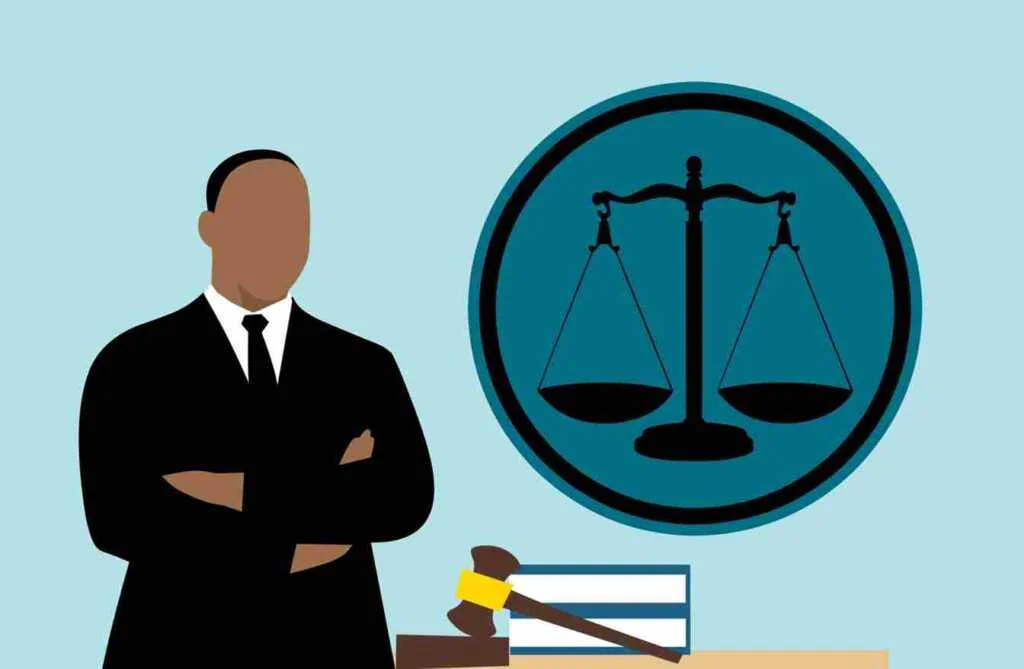Pre-Trial is Mandatory
Under Rule 18 of the Rules of Court, pre-trial is mandatory. Sec. 1 of the Rules states, to wit:
“Section 1.When conducted. — After the last responsive pleading has been served and filed, the branch clerk of court shall issue, within five (5) calendar days from filing, a notice of pre-trial which shall be set not later than sixty (60) calendar days from the filing of the last responsive pleading.”
In the case of Silvestre Tiu vs. Daniel Middleton[1], the Supreme Court held that pre-trial is an essential device for the speedy disposition of disputes. Hence, parties cannot brush pre-trial aside as a mere technicality. In fact, in the earlier case of Development Bank of the Philippines vs. Court of Appeals[2], the Supreme Court observed that, to wit:
“Everyone knows that a pre-trial in civil actions is mandatoryand has been so since January 1, 1964. Yet to this day its place in the scheme of things is not fully appreciated, and it receives but perfunctory treatment in many courts. Some courts consider it a mere technicality, serving no useful purpose save perhaps, occasionally to furnish ground for non-suiting the plaintiff, or declaring a defendant in default, or, wistfully, to bring about a compromise. The pre-trial device is not thus put to full use. Hence it has failed in the main to accomplish the chief objective for it:the simplification, abbreviation and expedition of the trial, if not indeed its dispensation. This is a great pity, because the objective is attainable, and with not much difficulty, if the device were more intelligently and extensively handled.”
In the case of Eufemia Balatico vda. De Agatep vs. Roberta Rodriguez[3], the Supreme Court had the occasion to remind the bar and the public that, to wit:
“x x x pre-trial rules are not to be belittled or dismissed, because their non-observance may result in prejudice to a party’s substantive rights. Like all rules, they should be followed except only for the most persuasive of reasons when they may be relaxed to relieve a litigant of an injustice not commensurate with the degree of his thought[less]ness in not complying with the procedure.”
Duty of Parties to Attend Pre-Trial
Hence, under Sec. 4, Rule 18 of the Rules, it shall be the duty of the parties and their counsel to appear at the pre-trial. The non-appearance of a party and counsel may be excused only for acts of God, force majeure, or duly substantiated physical inability. Further, a representative may appear on behalf of a party, but shall be fully authorized in writing to enter into an amicable settlement to submit to alternative modes of dispute resolution, and to enter into stipulations or admissions of facts and documents[4].
Under Sec. 5 of the same rule, failure on the part of the defendant and counsel to appear at the pre-trial without valid cause when duly notified, shall be cause to allow the plaintiff to present his or her evidence ex-parte within ten (10) calendar days from termination of pre-trial, and the court to render judgment on the basis of the evidence offered.
In the case of Absolute Management Corporation vs. Metropolitan Bank and Trust Company[5], the Supreme Court stressed the importance of pre-trial and the pertinent rules thereto, and when a counsel failed to present proof of her authority to represent the third-party defendant at the pre-trial, the third-party plaintiff was allowed to present her evidence ex parte, thus:
“The court a quo did not commit such grave abuse of discretion in the case at bar. The Order given by the RTC in open court dated November 20, 2006 stated, viz.:
When this case was called for pre-trial conference, co-plaintiff Sandy Ang failed to appear despite notice, thus, this case is hereby dismissed, insofar as he is concerned. Accordingly, defendant Absolute Management Corp. may now adduce evidence ex parte in support of its counterclaim against co-plaintiff Sandy Ang.
With respect to the third-party complaint of Absolute Management Corp., against third-party defendant Metropolitan Bank and Trust Company whose counsel failed to present a Secretary’s Certificate and Special Power of Attorney authorizing her to represent said bank in today’s pre-trial, said third-party plaintiff is hereby allowed to present evidence ex parte pursuant to the provisions of Sec. 5, Rule 18 of the 1997 Rules of Civil Procedure.”
In the same case of Absolute Management Corporation[6], the Supreme Court cited the case of Development Bank of the Philippines v. Court of Appeals[7], and went on to say, to wit:
“This Court has incisively explained the ratiocination of the foregoing rule on pre-trial in the case of Development Bank of the Philippines v. Court of Appeals:
Everyone knows that a pre-trial in civil actions is mandatory, and has been so since January 1, 1964. Yet to this day its place in the scheme of things is not fully appreciated, and it receives but perfunctory treatment in many courts. Some courts consider it a mere technicality, serving no useful purpose save perhaps, occasionally to furnish ground for nonsuiting the plaintiff, or declaring a defendant in default, or, wistfully, to bring about a compromise. The pre-trial device is not thus put to full use. Hence it has failed in the main to accomplish the chief objective for it: the simplification, abbreviation and expedition of the trial, if not indeed its dispensation. This is a great pity, because the objective is attainable, and with not much difficulty, if the device were more intelligently and extensively handled.
x x x x
What needs stressing is that the parties as well as the Trial Court must realize that at the pre-trial, the parties are obliged not only to make formal identification and specification of the issues and of their proofs, as above described – indeed, there is no reason why the Court may not oblige the parties to set these matters down in separate writings and submit them to the Court prior to the pre-trial, and then to discuss, refine and embody the matters agreed upon in a single document at or shortly after the pretrial – but also and equally as peremptorily, to directly address and discuss with sincerity and candor and in entire good faith each of the other subjects enumerated in Section 1, Rule 20, i.e., the “possibility of an amicable settlement or of a submission to arbitration,” the “advisability of a preliminary reference of issues to a commissioner,” and “such other matters as may aid in the prompt disposition of the action,” inclusive of a resort to the modes of discovery.
Consistently with the mandatory character of the pre-trial, the Rules oblige not only the lawyers but the parties as well to appear for this purpose before the Court, and when a party “fails to appear at a pre-trial conference (he) may be non-suited or considered as in default.” The obligation “to appear” denotes not simply the personal appearance, or the mere physical presentation by a party of one’s self, but connotes as importantly, preparedness to go into the different subject assigned by law to a pre-trial. And in those instances where a party may not himself be present at the pre-trial, and another person substitutes for him, or his lawyer undertakes to appear not only as an attorney but in substitution of the client’s person, it is imperative for that representative of the lawyer to have “special authority” to make such substantive agreements as only the client otherwise has capacity to make. That “special authority” should ordinarily be in writing or at the very least be “duly established by evidence other than the self-serving assertion of counsel (or the proclaimed representative) himself.” Without that special authority, the lawyer or representative cannot be deemed capacitated to appear in place of the party; hence, it will be considered that the latter has failed to put in an appearance at all, and he [must] therefore “be non-suited or considered as in default,” notwithstanding his lawyer’s or delegate’s presence.”
In the case of Philippine Steel Coating Corp. vs. Eduard Quinones[8], considering the failure of the defendant to appear at the pre-trial conference and to file its pre-trial brief, the Supreme Court ruled that it should suffer the effects of its misfeasance, hence:
“Ultra Mar essentially argues that it should have been allowed to present its evidence because its non-appearance at the pre-trial conference and failure to file pre-trial brief were attributable to its counsel’s gross negligence for which it should not be made to suffer the consequences. Ultra Mar further postulates that it has a meritorious defense which could lead the RTC to rule otherwise had it been presented.
The petition is devoid of merit.
At the heart of this case is the propriety of the RTC’s Order declaring Ultra Mar in default, allowing Fermida to present its evidence ex parte and thereafter, rendering judgment on the basis thereof.
Prefatorily, it bears to emphasize that as the Rules of Civil Procedure presently stand, if the defendant fails to appear for pre-trial, a default order is no longer issued. Initially, the phrase “as in default” was included in Rule 20 of the old rules. With the amended provision, the phrase “as in default” was deleted, the purpose of which is “one of semantical propriety or terminological accuracy as there were criticisms on the use of the word default in the former provision since that term is identified with the failure to file a required answer, not appearance in court.” While the order of default no longer obtains, its effects were nevertheless retained.
Thus, Section 4, Rule 18 requires the parties and their counsel to appear at the pre-trial conference. The effect of their failure to appear is spelled under Section 5 of the same rule, as follows:
Section 4. Appearance of parties. – It shall be the duty of the parties and their counsel to appear at the pre-trial. The non-appearance of a party may be excused only if a valid cause is shown therefor or if a representative shall appear in his behalf fully authorized in writing to enter into an amicable settlement, to submit to alternative modes of dispute resolution, and to enter into stipulations or admissions of facts and of documents.
Section 5. Effect of failure to appear. – The failure of the plaintiff to appear when so required pursuant to the next preceding section shall be cause for dismissal of the action. The dismissal shall be with prejudice, unless otherwise ordered by the court. A similar failure on the part of the defendant shall be cause to allow the plaintiff to present his evidence ex parte and the court to render judgment on the basis thereof.
x x x
Hence, the failure of a party to appear at pre-trial has adverse consequences: if the absent party is the plaintiff then he may be declared non-suited and his case is dismissed; if the absent party is the defendant, then the plaintiff may be allowed to present his evidence ex parte and the court to render judgment on the basis thereof.
By way of exception, the non-appearance of a party and counsel may be excused if (1) a valid cause is shown; or (2) there is an appearance of a representative on behalf of a party fully authorized in writing to enter into an amicable settlement, to submit to alternative modes of dispute resolution, and to enter into stipulations or admissions of facts and of documents. What constitutes a valid cause is subject to the court’s sound discretion and the exercise of such discretion shall not be disturbed except in cases of clear and manifest abuse.”
In another case, Advance Textile Mills, Inc. vs. Willy Tan[9], the Supreme Court nevertheless cautions the bench on the application of the provisions of Rule 18, thus:
“A pre-trial conference facilitates the disposal of cases by simplifying or limiting the issues and avoiding unnecessary proof of facts at the trial. Before a party is non-suited or is declared as in default, it must be shown that said party and his counsel were duly served with separate notices of the pre-trial conference.”
Clearly, appearance at the pre-trial is mandatory, except during the instances of acts of God, force majeure, or duly substantiated physical inability.
Effect of Absence during Pre-Trial
The failure of a defendant to appear, when duly notified, allows cause for a plaintiff to present his or her evidence ex-parte within ten (10) calendar days from termination of pre-trial, and for the court to render judgment on the basis of the evidence offered.
Thus, if the defendants to a case have been duly notified, either by registered and electronic mail, or even personally, as when the schedule for pre-trial was already made known to the parties in open court, their non-appearance renders them liable for the consequences of failing to appear during pre-trial.
Accordingly, under Sec. 4 and 5, Rule 18 of the Rules, the failure of the defendants to appear at the pre-trial renders them “as in default”, giving grounds for the other appearing party to move for the presentation of evidence ex parte, and for the court to render judgment on the basis of the evidence offered.
Again, as held in the case of Tiu[10], pre-trial and its governing rules are not technicalities which the parties may ignore or trifle with. The Rules of Court cannot be ignored at will and at random to the prejudice of the orderly presentation and assessment of the issues and their just resolution.[11] In this regard, pursuant to Sec. 4 and 5, Rule 18 of the Rules, the non-appearing defendants should be made to bear the consequences of their actions.
About Nicolas and De Vega Law Offices
If you need assistance in any civil or criminal law-related issues or court litigation, we can help you. Nicolas and de Vega Law Offices is a full-service law firm in the Philippines. You may visit us at the 16th Flr., Suite 1607 AIC Burgundy Empire Tower, ADB Ave., Ortigas Center, 1605 Pasig City, Metro Manila, Philippines. You may also call us at +632 84706126, +632 84706130, +632 84016392 or e-mail us at [email protected]. Visit our website https://ndvlaw.com.
[1] G.R. No. 134998, 19 July 1999.
[2] G.R. No. L-49410, 26 January 1989.
[3] G.R. No. 170540, 28 October 2009.
[4] Sec. 4, Rule 18, Rules of Court.
[5] G.R. No. 190277, 23 July 2014.
[6]Ibid.
[7]Supra, Note 6.
[8] G.R. No. 194533, 19 April 2017.
[9] G.R. No. 154040, 28 July 2005.
[10]Supra, Note 5.
[11] Auria Limpot vs. Court of Appeals, G.R. No. L-44642, 20 February 1989.









